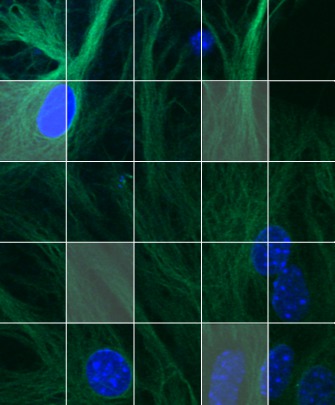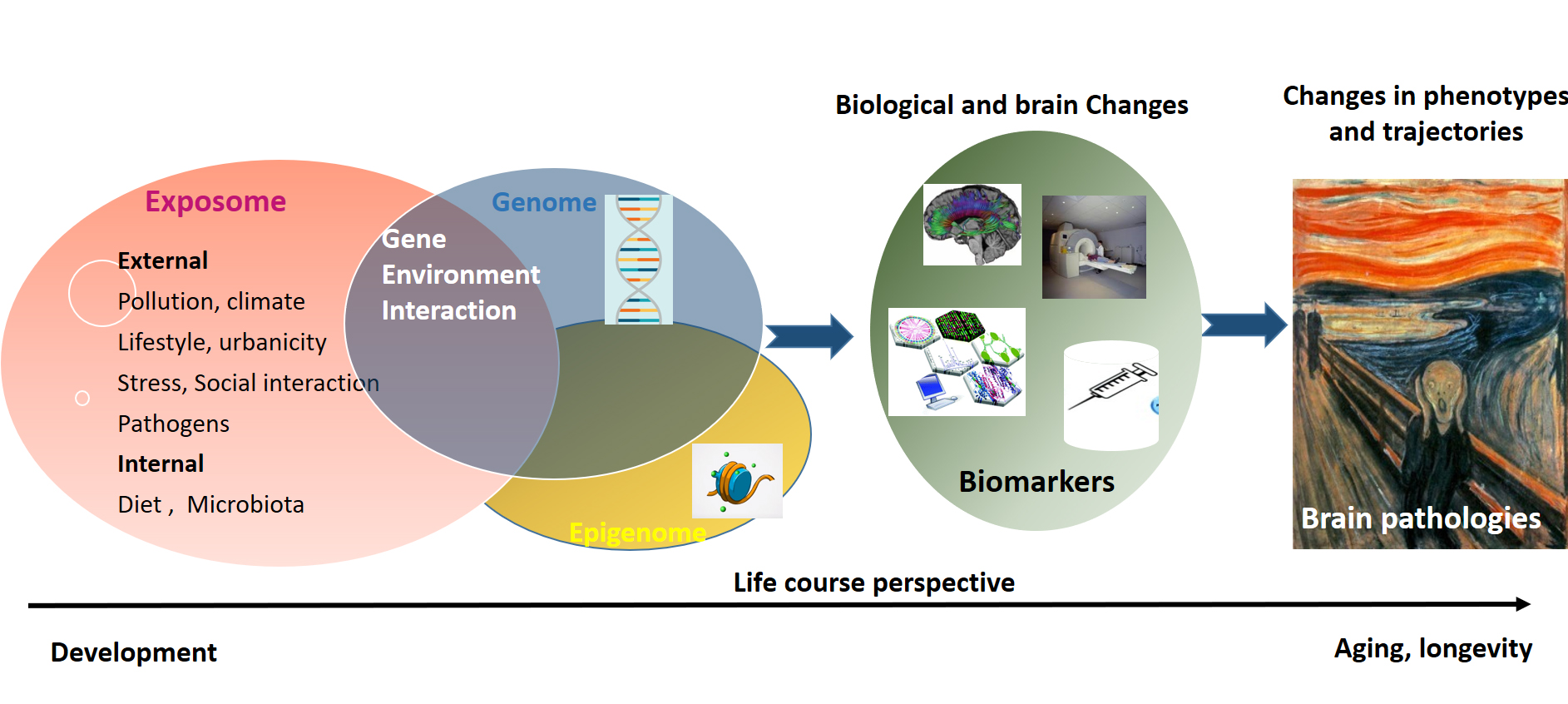Research subject
Neuropsychiatric disorders, a public health priority worldwide, are the result of the accumulation and interactions throughout life of environmental, biological, genetic and epigenetic factors. Genetic data on these pathologies have significantly increased but must be now accompanied by greater knowledge about the role of the environment, which constitutes 70% to 90% of the risk of developing these pathologies.
Our unifying hypothesis states that environmental conditions, whether exogenous (psychosocial exposures, stress, lifestyle, pathogens, pollution and climate) or endogenous (diet, drugs, immunity, microbiota), shape our brain, the cognition and the behavior by acting on individual genetic vulnerability.
Our main objective is the identification and study of potentially modifiable environmental factors (vulnerability or protective) and biomarkers of neuropsychiatric pathologies that can be used to :
- Predict complex trajectories in order to prevent the onset of cognitive and mental disorders
- Inform public health prevention strategies
- Propose multimodal personalized medicine
- Develop innovative treatments.
Our multidisciplinary team (psychiatrists, neuro-epidemiologist, psychologists, pharmacist, biostatistician) studies suicidal behavior, eating disorders, schizophrenia and Alzheimer's disease (cognitive impairment in aging): 4 research axes.
Using an original approach, we identify risk factors and biological, cognitive and behavioural determinants common to these phenotypes and work on multi-causal etiological models. We have thus highlighted, on the one hand, common points between psychiatric and neurological disorders (white matter brain alterations, inflammation, decision making) and, on the other hand, we have identified specific homogeneous subgroups (vulnerable personalities, late depression, sleep disorders, social pain). These data pave the way for precision medicine.
Our epidemiological and clinical work is based on :
- Population_based cohort studies including the three-city Study (Bordeaux, Dijon, Montpellier http://www.three-city-study.com/) nearly 10,000 people aged 65 and over followed for 15 years, and its psychiatric part : the Esprit study. We also work with open access cohorts such as CONSTANCES (100 000 participants).
- Innovative clinical cohorts: Sui-predict, Smart-crisis, DIBLAN, G-PACTS, NISIS, SOLSTIS, GENESIS, DIAPEPSY, FACE.
These richly phenotyped cohorts allow us to perform multi-level analyses (lifestyle, iatrogeny, neuropsychology, genetics, biology, brain imaging, and recently COVID-19 exposure and infection). Some cohorts are also equipped with cuting edge sub-clinical biomarkers, integrating "omics" and markers from e-health (movement, sleep, social networks, biosensors) and robotics (social interactions).
- From longitudinal data, including lifetime exposure, we establish predictive statistical models.
Our work is then enriched by translational approaches conducted notably in collaboration with other IGF teams, in order to decipher physiopathological processes identified in our cohorts.
Our collaborations
- National : ISEM, Montpellier ; ISPED, Bordeaux ; Institut of Psychiatry &Neurosciences Paris ; Fondamental Foundation , Paris
- International : Melbourne & Canberra Univ, Australia ; Badajos Univ; Sevilla Univ; Jimenez Diaz, Foundation, Madrid
From environmental exposures to neuropsychiatric diseases














